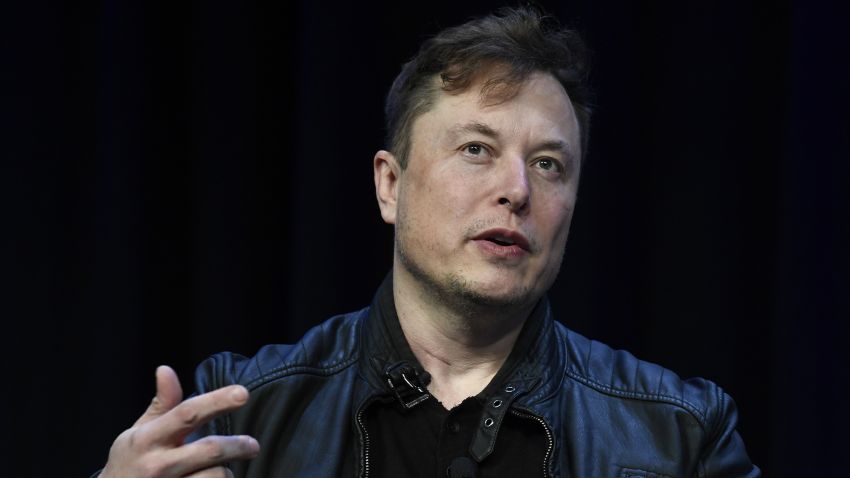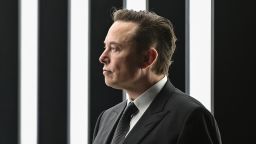Editor’s Note: Dean Obeidallah, a former attorney, is the host of SiriusXM radio’s daily program “The Dean Obeidallah Show” and a columnist for The Daily Beast. Follow him @DeanObeidallah. The opinions expressed in this commentary are his own. View more opinion on CNN.
Elon Musk, the world’s richest person, announced last week that he wanted to buy Twitter, instantly triggering a passionate response. We saw conservatives cheer while some progressives slammed the proposal, given concerns Musk may allow Donald Trump as well as others that Twitter has banned back on the platform.
Let’s be blunt: Musk’s plan to buy Twitter isn’t that big of deal. Twitter is simply one of many social media platforms – and one only about 25% of American adults use.

Instead of fighting over Musk’s purchase of Twitter, we should use the controversy over his $43 billion cash offer to ask how someone with that much money can fail to pay their fair share of taxes. That must end. We need a mandatory tax on the ultra-wealthy that ensures they cannot escape paying taxes the way the rest of us do. If not, we are on the path to becoming an oligarchy. This issue is of importance, particularly as Americans file their tax returns by the April 18 deadline.
During the pandemic, while unemployment skyrocketed and Americans with lesser means risked their lives working simply to put food on the table, Musk was getting richer. The owner of Tesla and other businesses reportedly saw his wealth grow by nearly $118 billion in 2021. That comes out to an increase of over $300 million a day.
But as ProPublica reported last year, while Musk’s wealth grew by nearly $14 billion from 2014 to 2018, he paid relatively little in taxes in that period.
For example, in 2017, he reportedly paid only $65,000. And worse, in 2018, he paid zero income taxes. That means if you paid $1 in income taxes in 2018, you paid more in taxes than the billionaire. Does that sound fair to you?
As ProPublica also noted, the median American household – which earned about $70,000 annually – paid 14% in federal taxes. What was Musk’s tax rate between 2014 to 2018? According to ProPublica, just a little over 3%!
After that report came out, Musk responded by slamming critics and claiming he would pay billions in taxes for 2021. But that tax payment was required because he exercised stock options that delivered him billions in profits last year.
Even then, Musk’s Tesla saw $5.5 billion in net income but will pay zero in U.S. taxes, according to a CNN report – likely because of tax loopholes that allow a company to claim its profits were made at foreign locations.
To be fair, Musk isn’t the only member of today’s billionaire class who became wealthier during the pandemic. Since Covid-19 struck, US billionaires have seen their collective fortunes skyrocket by more than 70% to more than $5 trillion, according to a report by Americans for Tax Fairness and the Institute for Policy Studies Program on Inequality, using data compiled by Forbes.
And the world’s richest 10 men – with Musk topping that list – saw their collective wealth more than double, rising by $1.3 billion a day. Yes, per day.
Like Musk, some other billionaires have paid low amounts of taxes, as ProPublica detailed. Amazon founder Jeff Bezos paid zero taxes in 2007 and repeated that amazing feat in 2011. Warren Buffett – whose wealth rose $24 billion between 2014 and 2018 – paid a tax rate of .10%. Buffet has even called for higher taxes on the ultra-rich, saying he pays a lower rate than his secretary.
Meanwhile, back in the world not defined by vanity rocket ships and whimsical desires to buy a social media platform, the pandemic resulted in about 100 million people descending into extreme poverty. The result is an even more massive gap between the super-rich and the rest of us.
The worst part is that such tax avoidance is apparently legal. The insanely wealthy pay the best lawyers and accountants, who employ tools such as borrowing, shell companies, complex trusts and more to shield the rich from tax liability.
The real-world impact is that you and I are left to fund our nation’s schools, military, police, environmental policies, etc. – all the stuff these wealthy people use but are paying as little taxes as possible to support.
Polls show Americans overwhelmingly are bothered “a lot” by the wealthy not paying what we view as their “fair share” of taxes.
There are proposals to fix this injustice. Last month President Joe Biden proposed that those worth more than $100 million pay a federal income tax rate of at least 20% on their income, including unrealized gains on assets that are not currently taxed.
Sen. Elizabeth Warren of Massachusetts and other Democrats last year introduced a “wealth tax” on the ultra-rich that included a 3% tax on billionaires. Overall, about 100,000 American families would be subject to the tax that, according to an analysis provided to lawmakers, would raise $3 trillion over a decade.
People favor the idea that Musk and other uber-rich should pay their fair share of taxes every year – not just when one of them exercises stock options.
I would bet, however, that people such as Musk would prefer pitting left vs. right so that we argue over whether he should own Twitter. Instead, we should be joining forces to demand that elected officials end the loopholes and ensure the wealthy pay their fair share.

